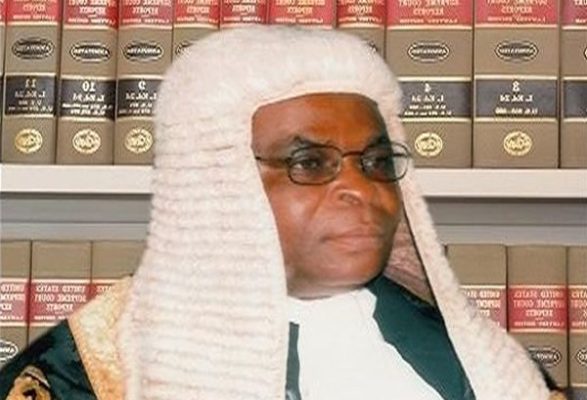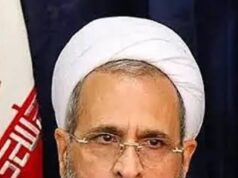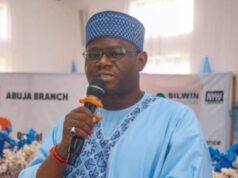
The Chief Justice of the Federation, Justice Walter Onnoghen, has complained about the undue interference of politicians in judicial appointments across the country.
He explained that the appointment of Judges has always been heavily politicized.
Justice Walter Onnoghen, who was represented by Justice Olabode Rhodes-Vivour at the just concluded Lagos State Judiciary’s first Bi-annual Lecture, themed “Judicial Standards, Integrity, Respect and Public Perception: A Comparative Analysis from Independence in 1960 into the Present Millennium,” stressed that the current system of Judges’ appointment in the country is such that the Governor of a State might not allow the names of persons nominated for judicial appointment to be sent to the National Judicial Council for scrutiny if the names of the Governor’s candidates are not included on the list.
The Chief Judge said that the revelations are not novel and are known to stakeholders in the judicial sector, saying that these are perennial problems that have plagued the administration of Justice in the Country.
“Access to Justice (A2Justice) has consistently, and for over a long period, denounced the use of flawed procedures of judicial appointment to recruit Judges of superior courts and highlighted the negative impact this has had on the administration of justice.
“Political interference in the judicial appointment process, which often leads to the appointment of relatives, associates or cronies of political office holders happens because the Judiciary has not risen to the challenge of defending its space and asserting its own independence. The National Judicial Council (“NJC”) must, and we say this respectfully, share the blame for this.
“In 2014, in a bid to strengthen the integrity of the judicial appointment process, the NJCadopted new Guidelines for the appointment of judicial officers(The Extant Revised NJC Guidelines & Procedural Rules for The Appointment of Judicial Officers of All Superior Courts of Record in Nigeria.)However, the NJC has not consistently enforced those guidelines or resisted efforts to circumvent them. In some cases, the Council has practically given some Judiciaries which flouted those guidelines what amounted to a free pass even after complaints about their failure to observe the guidelines were made. This happened with the recruitments of Judges into the Federal High Court in 2015, and the appointment of Judges in Lagos State in 2017.
“Therefore, the Nigerian Judiciary should not, and cannot now blow hot and cold at the same time on the subject of political interference in the judicial recruitment process or pass the buck when it comes to the responsibility of de-politicizing the appointment process. The Constitution has given the Judiciary the autonomy it needs to effectively resist political meddlesomeness in judicial appointments, and what the National Judicial Council needs to do, respectfully, is to insist that State and Federal Judiciaries faithfully and scrupulously comply with the letter and spirit of the new Guidelines it has made. Where it fails to do so, that failure will create the space for those who have traditionally preyed on the weaknesses of our judiciary to continue to do so.
“The Nigerian people are keen to hear about practical efforts being made by our Judiciary to end political interference with the judicial appointment process in the exercise of its endowed powers under the Constitution, because strictures are not enough: no length of moral admonition to political office holders, or denunciation of what they do with judicial appointments will stop them from wanting to exert some influence over the process. What is needed from the Judiciary is a tougher resolve and commitment to defend its independence and processes from untoward influences and greater accountability for its actions.
“We thank His Lordship, the Chief Justice of Nigeria, for reprising these concerns and drawing public attention, once again, to the need to restrain political branches from interfering with the affairs of the Judiciary. We believe however, that the Judiciary needs to step up to the plate and do more than it has done in the past, to defend its independence.”






